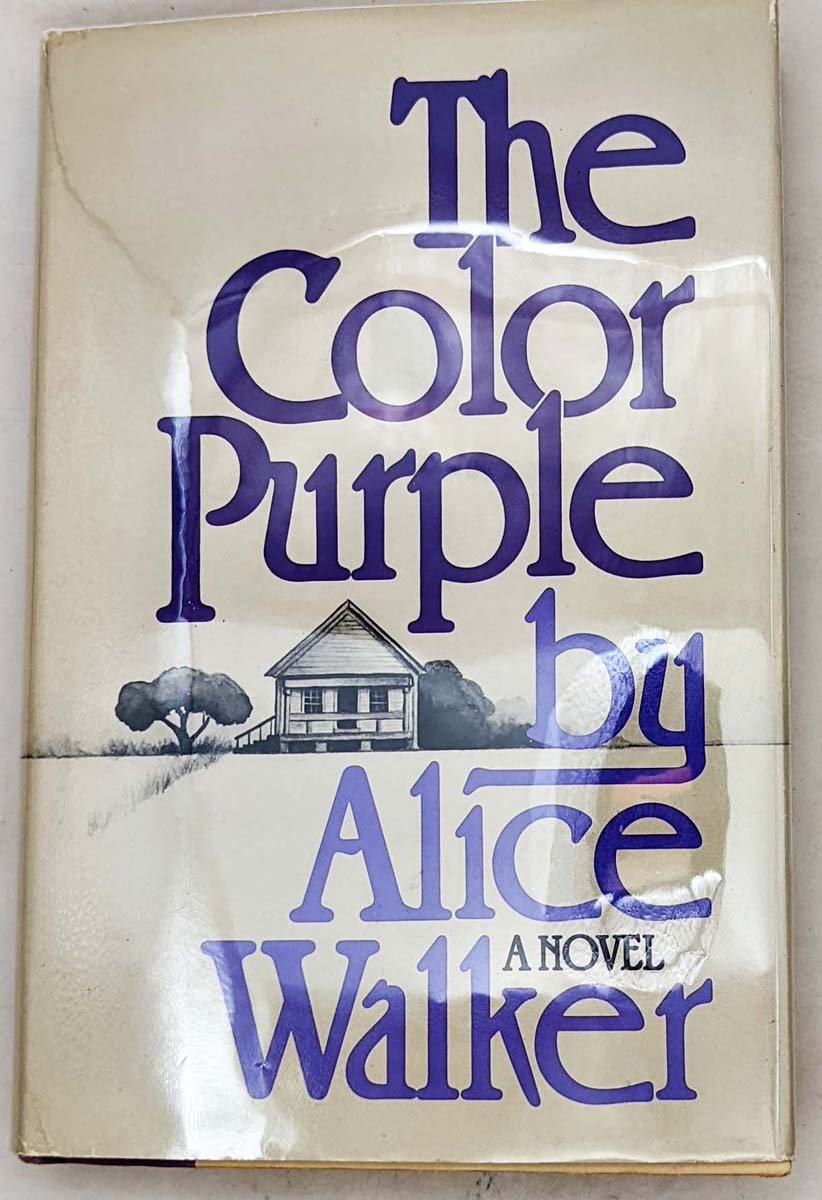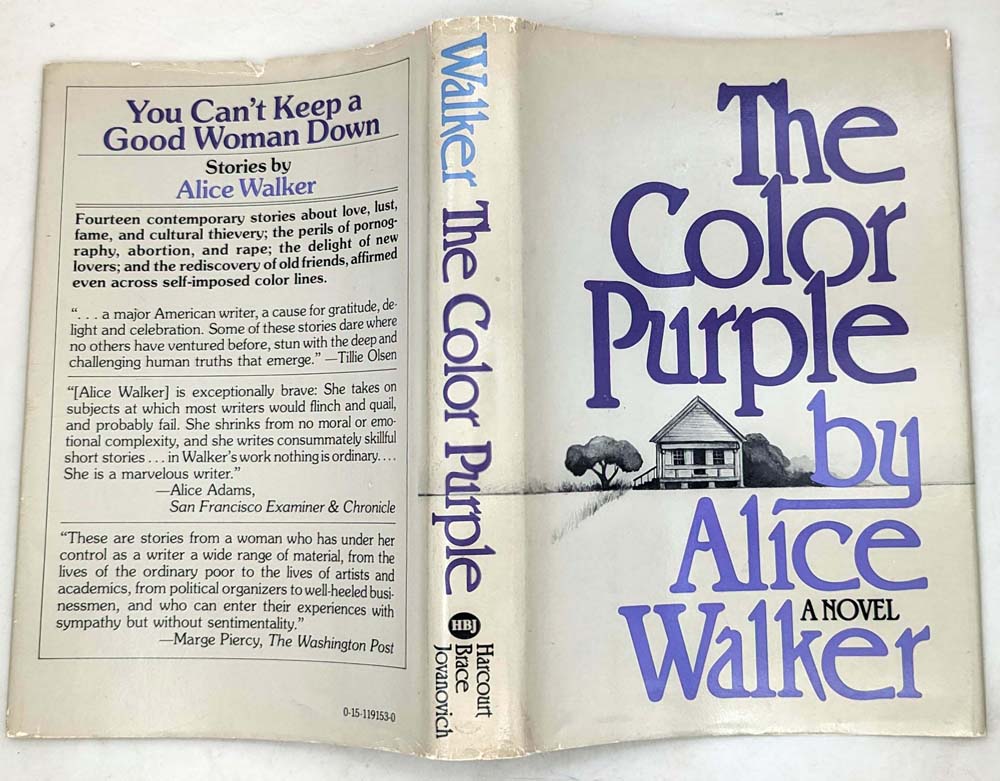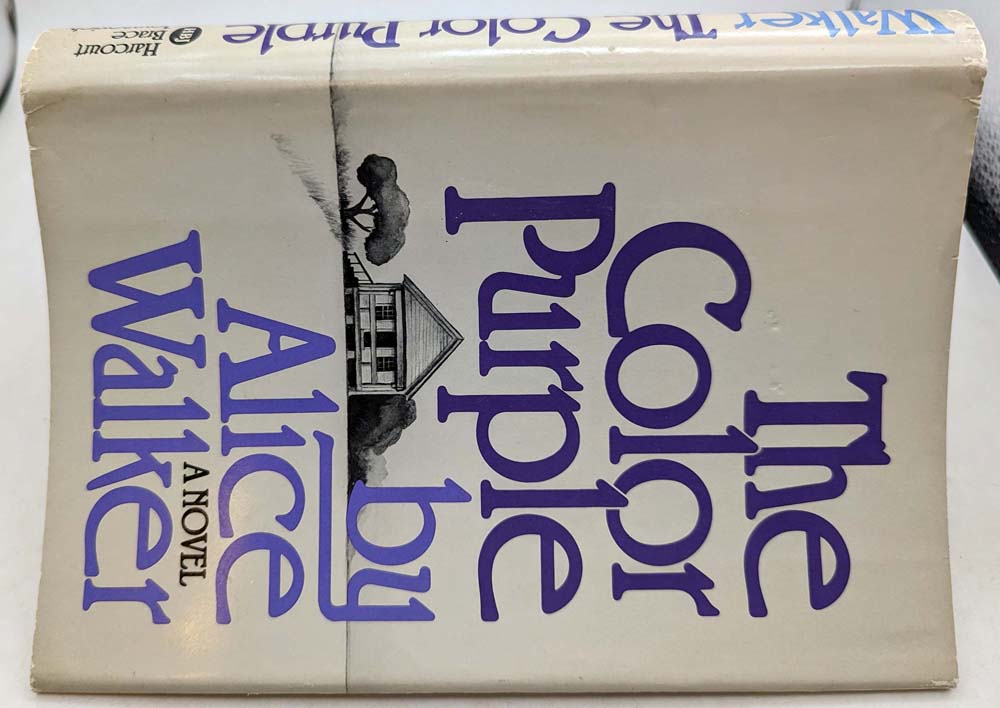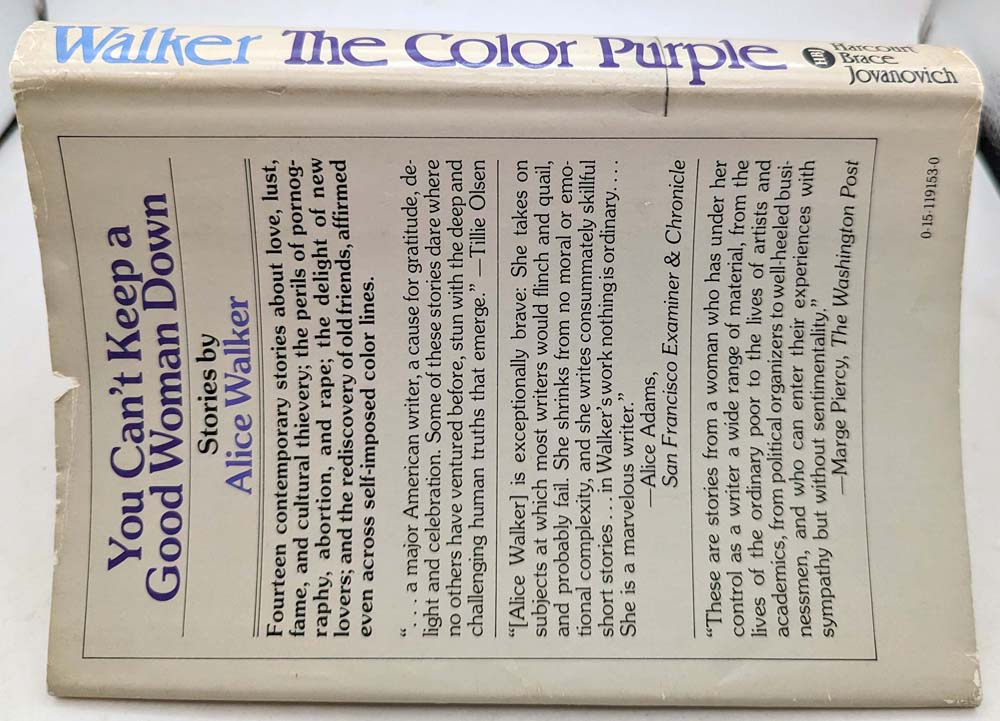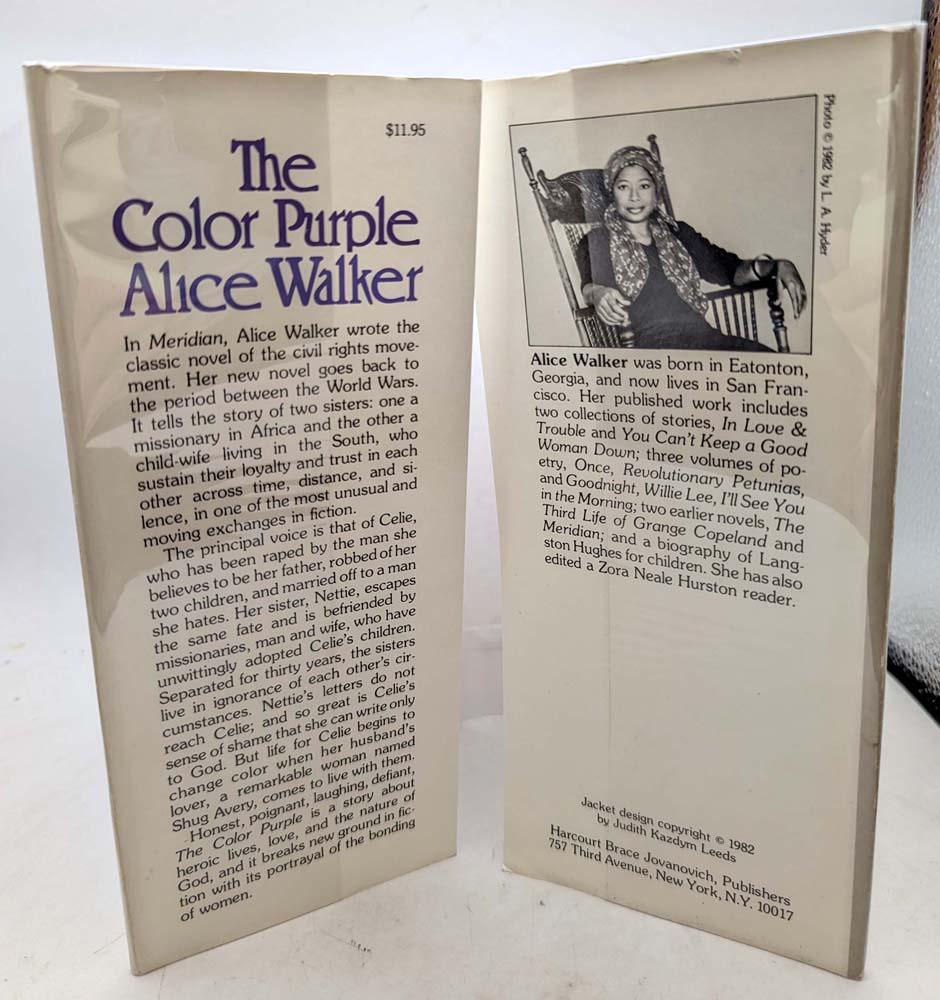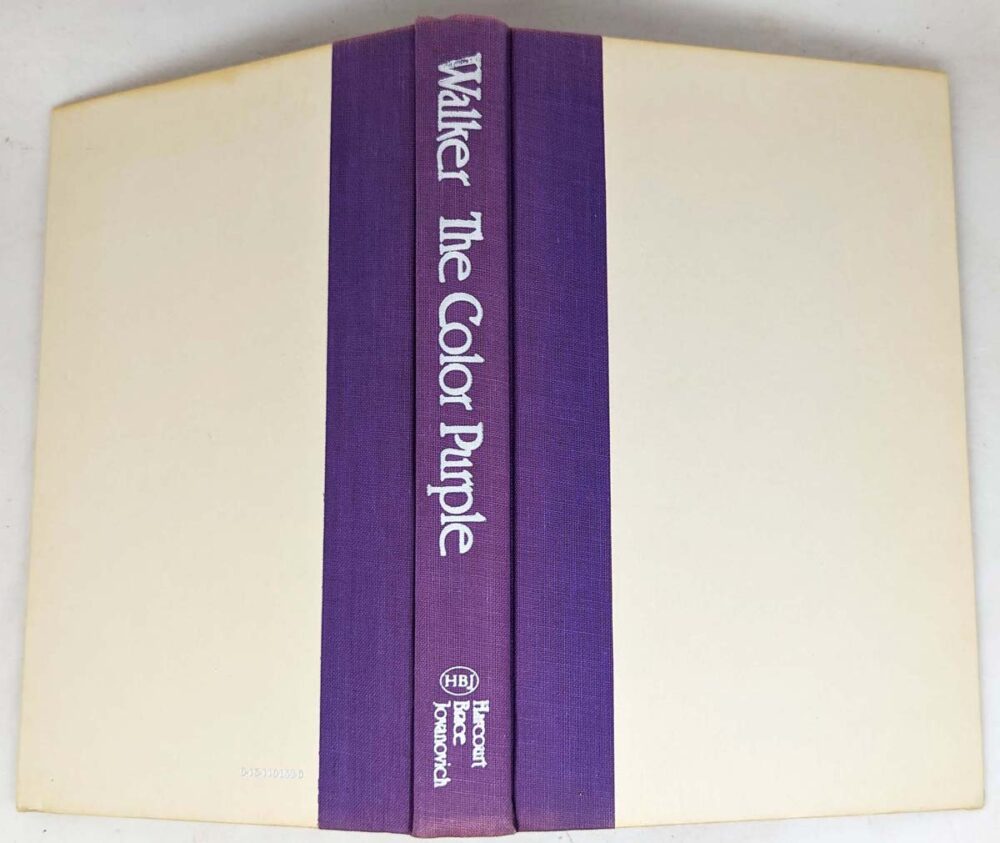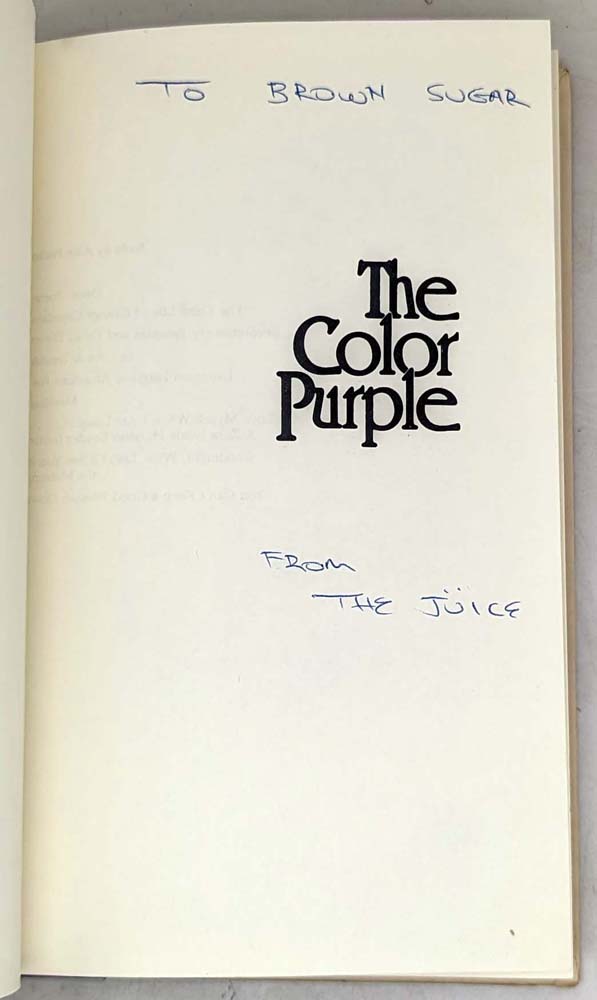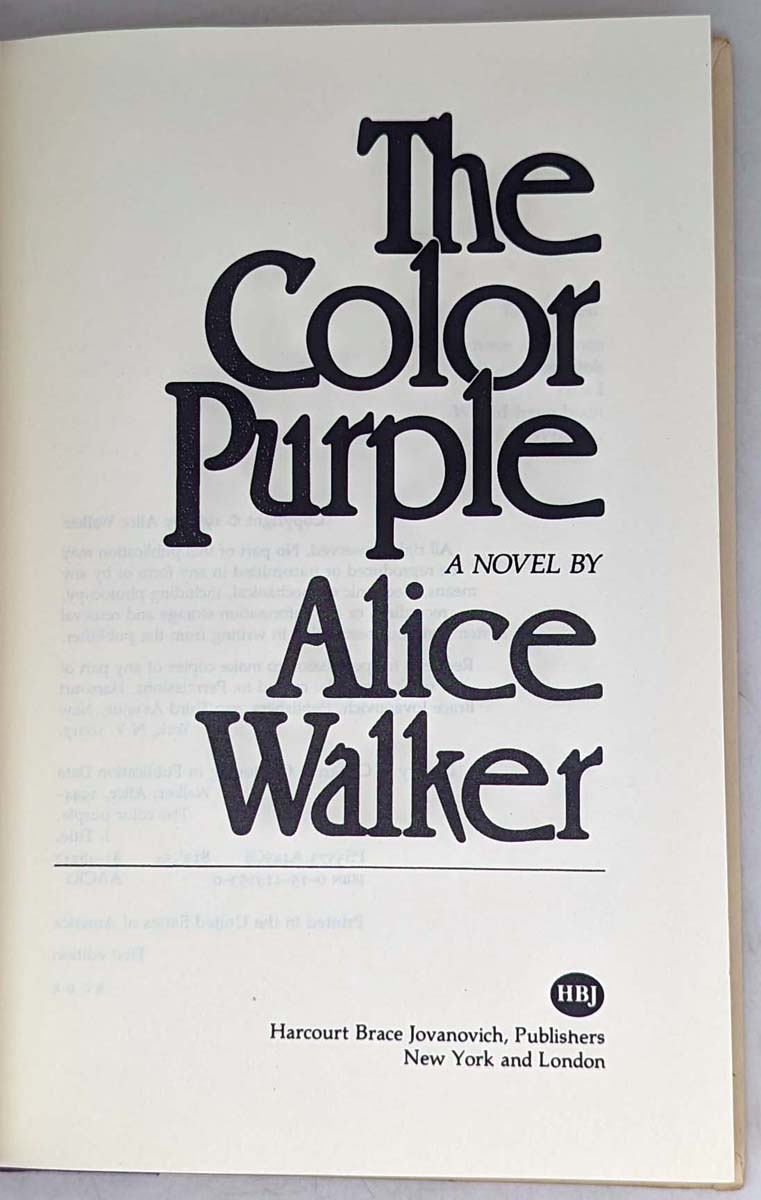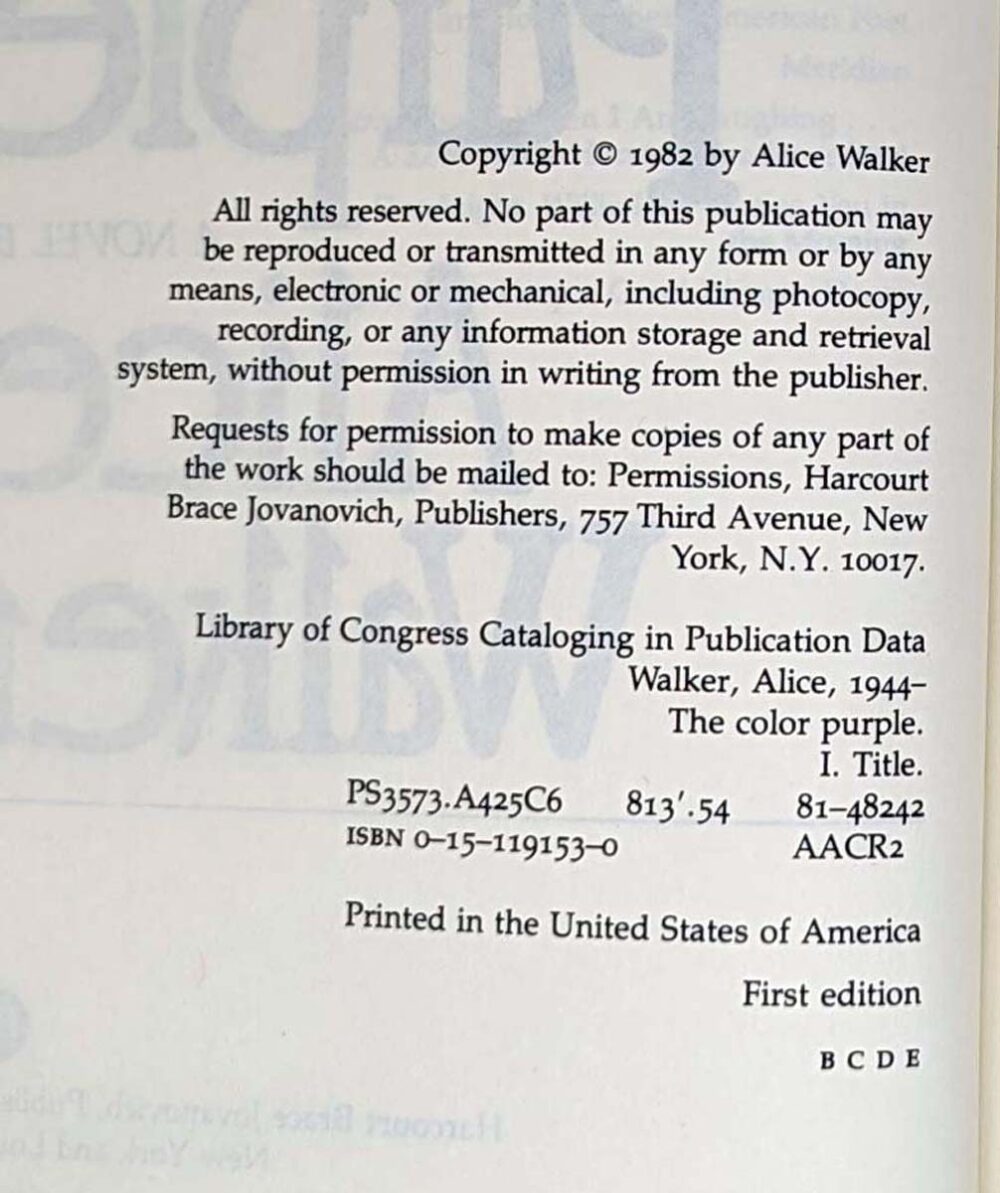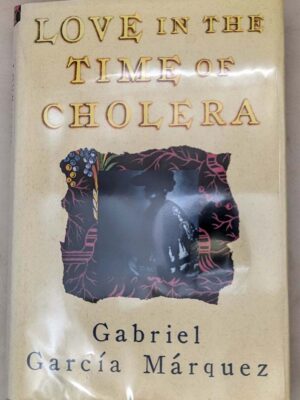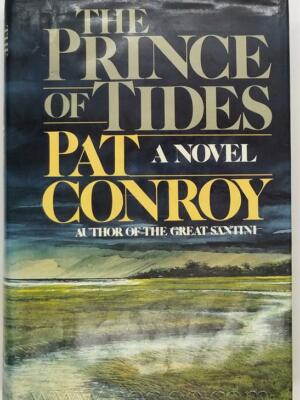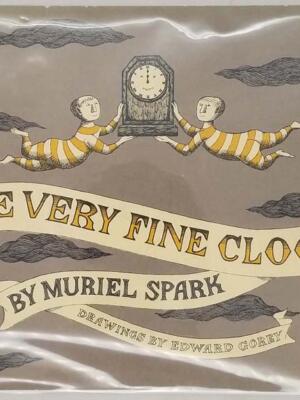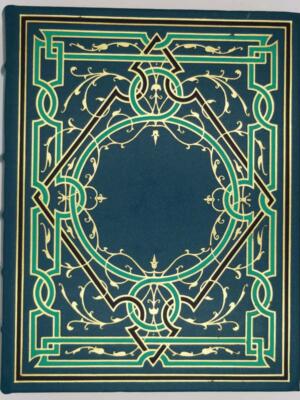Alice Walker’s The Color Purple is a groundbreaking epistolary novel that won the 1983 Pulitzer Prize for Fiction and the National Book Award, cementing its place as a cornerstone of American literature. Set in the early 20th-century American South, the story unfolds through the letters of Celie, a poor Black woman enduring abuse, oppression, and separation from her beloved sister, Nettie. Over decades, Celie’s voice evolves from raw despair to hard-won resilience, shaped by her relationships with defiant women like Shug Avery, a blues singer, and Sofia, who refuses to be broken by racism or misogyny.
Walker’s unflinching prose—written in Black vernacular English—explores themes of racial violence, queer love, female solidarity, and spiritual redemption. The novel’s 1982 first edition, with its iconic purple spine (later echoed in the 1985 Spielberg film adaptation), became a cultural touchstone for its celebration of Black women’s voices and its critique of systemic oppression.
For Readers Moved by The Color Purple:
- Beloved (Toni Morrison, 1987) – A haunting exploration of slavery’s legacy through magical realism.
- Their Eyes Were Watching God (Zora Neale Hurston, 1937) – A lyrical journey of Black female self-discovery in the Jim Crow South.
- The Women of Brewster Place (Gloria Naylor, 1982) – Interconnected stories of Black women battling poverty and patriarchy.
